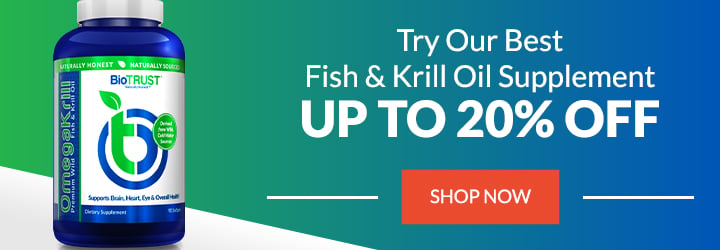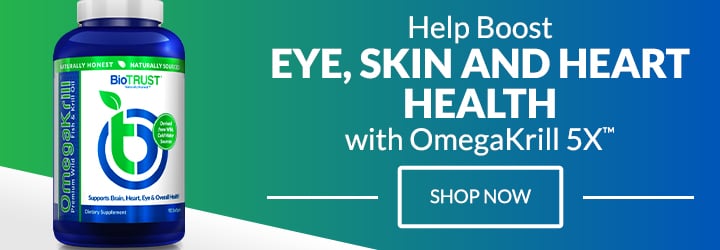11 Powerful Benefits of Omega-3 Fats (you won’t believe #9)

We don’t need to tell you that not all fats are bad. Some, in fact, are essential to life, including omega-3 fatty acids, which are real superheroes. Yet there are still many questions about these fats. What are the benefits of omega-3 fats? Why are they so important? Where can you find them? We’ll be exploring all those important questions and more in this blog article.
What Are Omega-3 Fatty Acids?
In the most basic terms, omega-3 fatty acids (aka omega-3s or n-3) are polyunsaturated fats that are considered “essential.” In other words, you need them, but your body can’t make them, so they must be obtained from your diet—either through foods, supplements, or a combination of the two. Unfortunately, the vast majority of Americans don’t get nearly enough, and that’s not good for either the body or the brain.
There are three main fats that fall under the omega-3 umbrella: EPA, DHA, and ALA.
EPA, or eicosapentaenoic acid, has a number of vital purposes. Perhaps the most notable is its support of the body’s ability to properly react to inflammation. 1 It’s also been shown to help protect against mental issues and help lift mood and ease depression. 2
DHA, or docosahexaenoic acid, is a vital component in cell membrane structures, especially in the brain, central nervous system, and eyes. 3
Meanwhile ALA, or alpha-linolenic acid, doesn’t have many functions in the body other than as an energy source. While it can be converted into the more important and functional omega-3s, EPA and DHA, unfortunately, in humans, this isn’t a very efficient process. Although the conversion rate can vary considerably due to genetics, it’s estimated that, on average, only 5% of ALA gets converted into EPA and 0.5% into DHA. 4
What Are the Benefits of Omega-3 Fats?
Among the most well-researched nutrients, some of the benefits of omega-3 fatty acids include:
- Support the body’s healthy response to inflammation 5,6
- Help ease pain 7
- Support joint and bone health 8
- Help lower blood triglycerides 9,10
- Help prevent or remove excess fat in the liver 11
- Support cognition and mood, decreasing the risk of depression 2 and anxiety 12
- Improve sleep and daily functioning 13
- Promote skin health, including softer, more hydrated skin 14
- Reduce the risk for dementia including Alzheimer’s 15
- Improve eye health 16
- Reduce symptoms of metabolic syndrome, including obesity and belly fat, insulin resistance, and high blood pressure 17
Of course, one of the most commonly-cited benefits of omega-3 pertain to heart health. Although there’s been some controversy about that, the most robust meta-analysis to date, recently published in the prestigious Journal of the American Medical Association, confirmed that supplementation with omega-3s lowers the risk for heart attack, coronary heart disease (CHD), cardiovascular disease (CVD), and death from CHD and CVD. 18
Considering that risk reductions are linearly related to the amount of supplemental omega-3s, one of the primary explanations for inconsistencies in the research is the wide-ranging doses used. Additionally, research has found that omega-3s may prevent irregular heart rate, slightly lower blood pressure, reduce arterial plaque, and thus support heart health. 19
Where Can You Find Omega-3 Fats?
Depending on the type of fat, you may need to look at different foods. For example, EPA and DHA are found primarily in fatty fish and seafood, which consume algae, the ecosystem’s primary producer of these essential fats. Of course, fish and krill oils are excellent, concentrated sources of these vital omega-3s.
ALA, a plant-based source of omega-3s, can be found in chia seeds, flaxseeds, and walnuts. Remember, though, conversion to EPA and DHA is very poor, so if you’re looking for a vegan source of omega-3s, then an algal oil may be optimal.
What’s the Optimal Amount of Omega-3 to Take?
The World Health Organization recommends at least 250 to 500 mg of EPA and DHA combined. 20 And the American Heart Association recommends eating two 3 ½-ounce servings of cold-water fatty fish weekly.
However, the latest research suggests that even those guidelines are not optimal. For example, a recent study showed that to achieve desirable levels of omega-3 fats, a person would need to eat at least three servings of fatty fish per week plus take an omega-3 supplement providing at least 500 mg of EPA and DHA daily. 21
Of course, it’s always worth checking with your personal health-care provider or nutritionist for your specific needs, especially if you have a health concern.
Look for wild-caught options that are low in mercury and provide at least 500 mg of EPA and DHA per 3-oz serving. Good options include Atlantic and Pacific mackerel, salmon, sardines, and oysters. And remember that not all fish or seafood is high in omega-3s. For example, shrimp and tilapia contain very little, and farm-raised fish typically contains less than wild-caught fish.
If you’re vegetarian, options include flaxseeds, chia seeds, and walnuts, which all provide the omega-3 ALA. Even better are the few plant foods that contain DHA and EPA: seaweed like nori (often used in sushi) and algae like chlorella and spirulina (which can be added to smoothies and protein shakes).
Variety is important, so don’t be afraid to switch it up and regularly eat a combination of all of the foods listed above.
Is Omega-3 Supplementation Worth It?
Sure, the best way to make sure you’re getting enough omega-3 fatty acids is to consume fish at least three times a week. Unfortunately, not all of us are big fans (guilty) and may only have it a couple times a month max. Or, fresh, healthy seafood may just be hard to come by in your location. What then? The simplest solution is to supplement with a krill, fish, or algae oil. In fact, much of the evidence we have on the benefits of omega-3 fats has come from studies involving omega-3 supplements rather than fresh seafood. (Note, if you do choose algae oil, more may be needed to reach the recommended amounts of DHA and EPA.)
Unfortunately, not all omega-3 fatty acid supplements are created equal. And some can be downright useless or even harmful due to contamination, pollution, and other environmental factors. Others don’t contain the amounts claimed on the labels. Educate yourself, and seek out the highest quality product you can find with a company you trust.
Thankfully, BioTRUST has taken all the guesswork out of the equation for you with OmegaKrill 5X, which addresses and solves all the common problems and concerns associated with omega-3 supplements. As proof in the pudding of its purity, safety, and efficacy, OmegaKrill 5X has earned the prestigious 5-STAR rating from the International Fish Oil Standards program (IFOS), the only third-party fish oil testing and certification program that sets the world’s highest standards for potency, purity, and freshness.
Whether you get your omega-3s from a fish source, a plant source, a supplement, or a combination, just get them—the benefits of omega-3s for overall health are vast and powerful! (Note that if you’re on blood-thinning medications or have a bleeding disorder, check with your doctor before beginning supplementation.)







